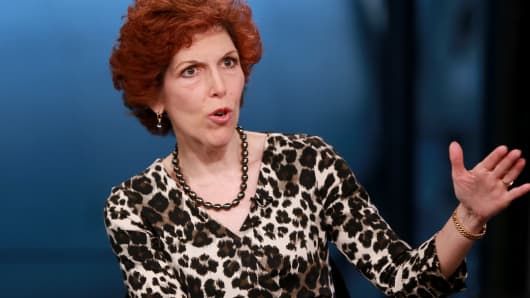The U.S. Federal Reserve makes better policy decisions when a more diverse group is at the table helping it avoid "group-think," Cleveland Fed President Loretta Mester said on Wednesday.
Mester did not comment on U.S. monetary policy in prepared remarks on diversity in the economics profession, which she said has seen only slow progress toward inclusiveness and opportunity in the last 50 years.
The central bank itself has been criticized for lacking diversity, especially in the upper ranks. Of the Fed's roughly 135 regional presidents in its history, all but six have been men and all but three have been white.
"I have seen firsthand how having a diversity of views expressed and discussed around the table can actually lead to better policy decisions, and there is actual research to back this up," Mester, one of three women among the Fed's 15 current policymakers, said at the Central State University College of Business.
On Tuesday the New York Fed, which had promised to canvass a diverse field of candidates, faced a torrent of criticism from politicians and activists after it picked as its new chief a white man and an insider in San Francisco Fed President John Williams.
Mester, who did not comment on the New York Fed decision, cited research showing women are choosing to major in economics at only a third of the rate of men, while the rate for minorities is about half that of white students.
The proportion of women among new U.S. economics PhDs has flatlined over the last decade, and has dropped among associate professors, while only 13 percent of professors are women in PhD-granting departments, according to the American Economic Association.
